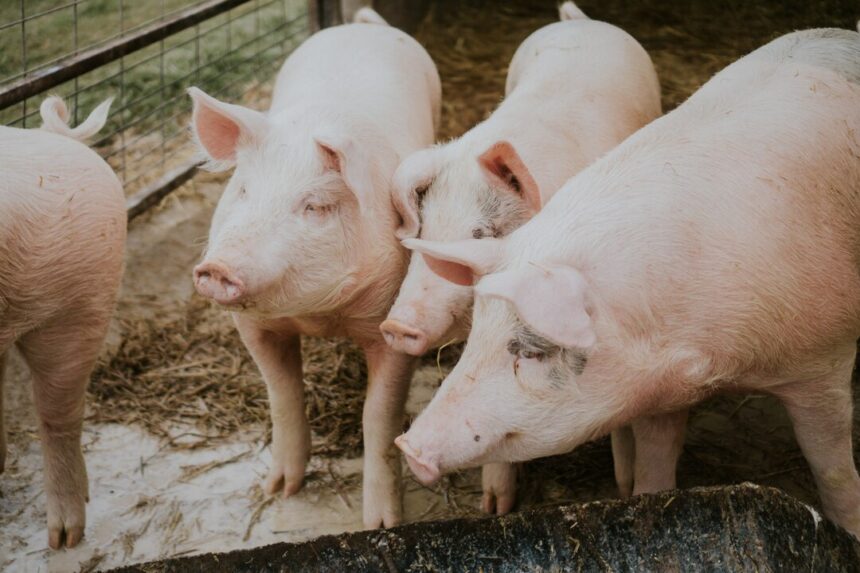Breeding and farming Minnesota pigs in South Africa offer a promising avenue for livestock producers looking to diversify their operations and capitalize on the unique characteristics of this renowned swine breed. With their exceptional growth rates, meat quality, and adaptability to various environmental conditions, Minnesota pigs present opportunities for sustainable and profitable pig farming ventures in the South African context. Here are ten key insights to consider when embarking on breeding and farming Minnesota pigs in South Africa:
1. Heritage and Background: Minnesota pigs, also known as Minnesota hogs or Minnesota large whites, trace their origins to the United States, where they were developed as a hybrid breed combining the characteristics of large white swine with other heritage breeds. This combination results in pigs known for their superior growth rates and meat quality.
2. Adaptability to South African Climate: Minnesota pigs exhibit excellent adaptability to the diverse climatic conditions of South Africa, thriving in both temperate and subtropical regions. Their resilience to heat and humidity makes them suitable for farming in various parts of the country.
3. Growth Rate and Feed Efficiency: One of the defining traits of Minnesota pigs is their exceptional growth rate and feed efficiency. They efficiently convert feed into muscle, resulting in rapid weight gain and reduced feeding costs compared to other swine breeds.
4. Meat Quality: Minnesota pigs are prized for their high-quality meat, characterized by lean muscle, excellent marbling, and superior flavor. Their meat is well-suited for various culinary applications, making it highly sought after by consumers and processors alike.
5. Reproductive Performance: Minnesota pigs exhibit robust reproductive performance, with sows known for their high fertility and prolificacy. This trait contributes to increased litter sizes and more efficient breeding programs, enhancing productivity and profitability on pig farms.
6. Housing and Management: Providing adequate housing and management practices is essential for successful Minnesota pig farming in South Africa. Construct well-ventilated housing facilities with proper temperature control to ensure the comfort and well-being of the pigs, along with efficient waste management systems to maintain hygiene and sanitation.
7. Nutrition Requirements: Meeting the nutritional needs of Minnesota pigs is crucial for maximizing growth and performance. Formulate balanced diets rich in essential nutrients such as protein, vitamins, and minerals, and ensure access to clean water at all times to support optimal health and productivity.
8. Disease Management: Implementing robust disease management protocols is essential for safeguarding the health and welfare of Minnesota pigs. Practice strict biosecurity measures to prevent the introduction and spread of diseases, along with regular health monitoring and vaccination programs to maintain herd health.
9. Breeding Strategies: Develop strategic breeding programs aimed at maximizing the genetic potential of Minnesota pigs. Select breeding stock based on desirable traits such as growth rate, meat quality, and reproductive performance, and employ techniques such as artificial insemination to optimize breeding outcomes.
10. Market Opportunities: Explore various market opportunities for Minnesota pig products in South Africa, including direct sales to consumers, supply to local markets, and partnerships with processors and distributors. Position Minnesota pork as a premium product, highlighting its superior quality and unique attributes to attract discerning customers.
Breeding and farming Minnesota pigs in South Africa present exciting prospects for livestock producers seeking to enhance productivity, profitability, and sustainability in their operations. By leveraging the breed’s exceptional growth rates, meat quality, and adaptability, pig farmers can capitalize on the growing demand for premium pork products and contribute to the development of the swine industry in South Africa. With careful planning, sound management practices, and a focus on genetic improvement, breeding and farming Minnesota pigs hold immense potential for success in the dynamic agricultural landscape of South Africa.
Join 'Farmers Mag' WhatsApp Channel
Get the latest Farming news and tips delivered straight to your WhatsApp
CLICK HERE TO JOIN






